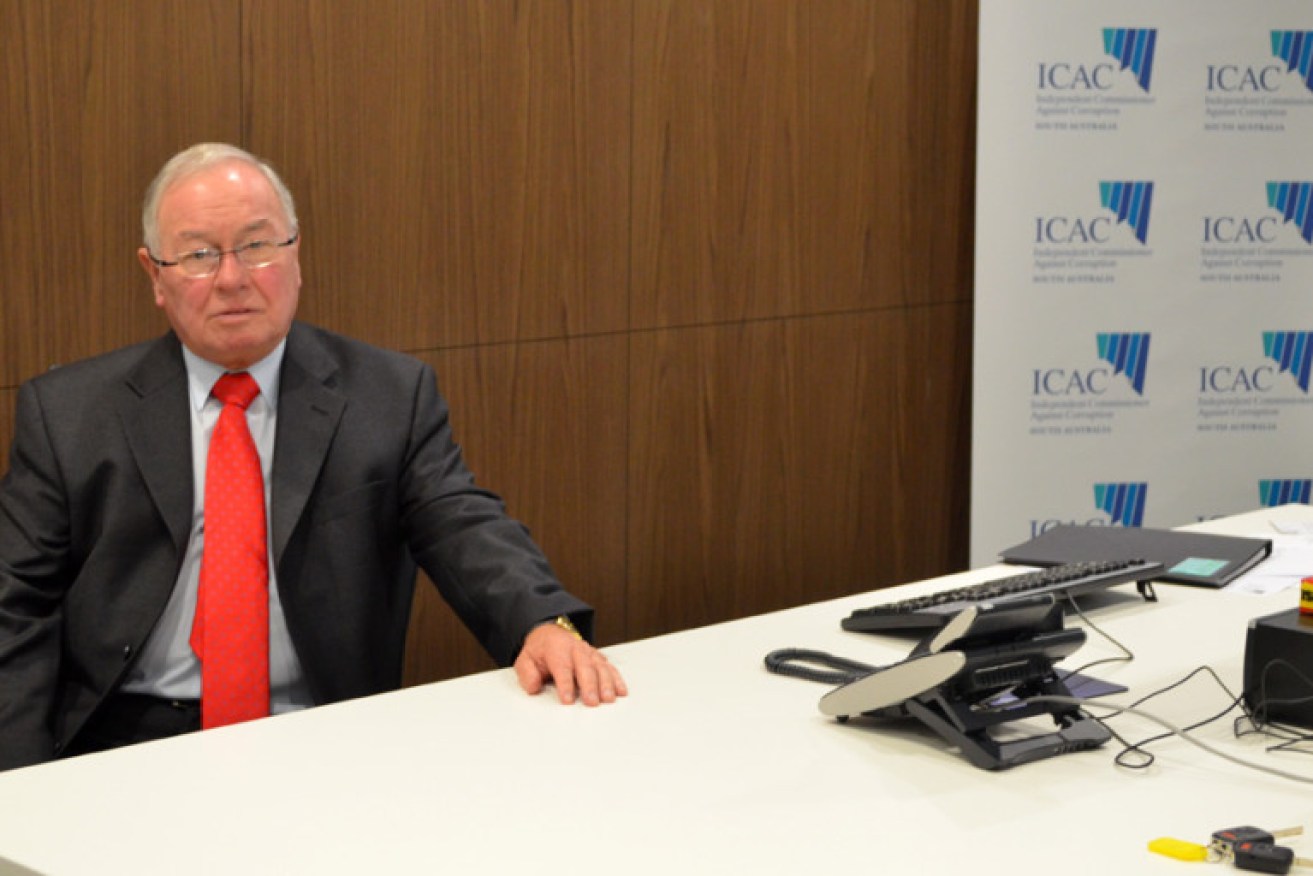The state’s public integrity system is plagued by unnecessary duplication, complexity, confusion and delay, the Independent Commissioner Against Corruption says.
Commissioner Bruce Lander today opened the ICAC’s first public inquiry, into the legislation governing the system of public integrity in South Australia.
Lander told the hearing his final report into the system would include recommendations for change.
He said the community was entitled to “an efficient and effective mechanism for the making of complaints and reports about any aspect of public administration”.
“At the moment there is, in my opinion, unnecessary duplication, complexity, confusion and delay,” Lander said.
Counsel assisting the commissioner Michael Riches summarised some of the submissions to the inquiry, concluding that duplication in the system can lead to inconsistencies.
“Since the commencement of the ICAC Act and the Office of Public Integrity the legislative scheme not only invites, but requires, duplication,” Riches said.
“The multiple pathways for complaint, combined with sometimes multiple mandatory reporting obligations, results in more than one agency considering the same complaint.
“Under the police complaints system both the OPI and the police ombudsman may make an assessment of the same conduct.
“On occasion those assessments will result in an inconsistent determination.”
He said the system meant unnecessarily long waits for complaints to be assessed.
“Delay has been raised as an issue at each step of the complaints process, including assessment (and) investigation,” he said.
While the ICAC Act contains many provisions ensuring the secrecy of ICAC investigations, the commissioner can choose to hold hearings in public.
Complaints about public administration in SA can go through several bodies, including the OPI, which is the “shopfront” for the ICAC, the Ombudsman and the Police Ombudsman.
Riches quoted the annual report of former Police Ombudsman Sarah Bolt, who described the situation where complaints can be delayed for more than 12 months as “dire”.
Some of the submissions made to the inquiry proposed radical changes to the system, including potentially abolishing the Police Integrity Tribunal to have police malpractice and corruption allegations determined by the same tribunal as for other public servants.
Another submission recommended merging the Police Ombudsman into ICAC to reduce duplication.
Riches said the definition of corruption in South Australian legislation was far broader than other states, and had led to absurdities.
For example, he said it was possible for a public servant to be charged with corruption for drink driving while on duty.
Riches said the Office of Public Integrity was unable to perform the function of a “clearing house” for complaints.
He said it had received nearly 600 complaints about potential corruption and maladministration since September last year.
Riches also said “some (submissions) advocate the streamlining of the complaints system by the abolition of the Police Ombudsman, while others propose that the ICAC no longer have oversight over investigations by inquiry agencies”.
“These hearings represent an opportunity for key agencies to identify how in their view each agency would be best placed to contribute to an effective and efficient integrity system,” he said.
Riches said the inquiry should consider:
- “What role should the police commissioner play in relation to the oversight of the management of conduct of the police?”
- “Should the police investigate themselves?”
- “Should an external agency have a role to play?”
- “Should the police commissioner continue to have an exclusive role to play on terms of disciplinary sanction?”
He also revealed that the State Coroner’s submission criticised the secrecy provisions in the Police Complaints Act.
– Correction: a previous version of this story said that the State Coroner criticised ICAC legislation. He in fact criticised the Police Complaints Act.






